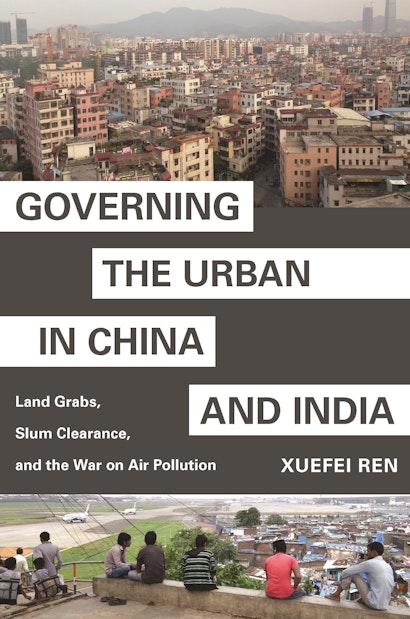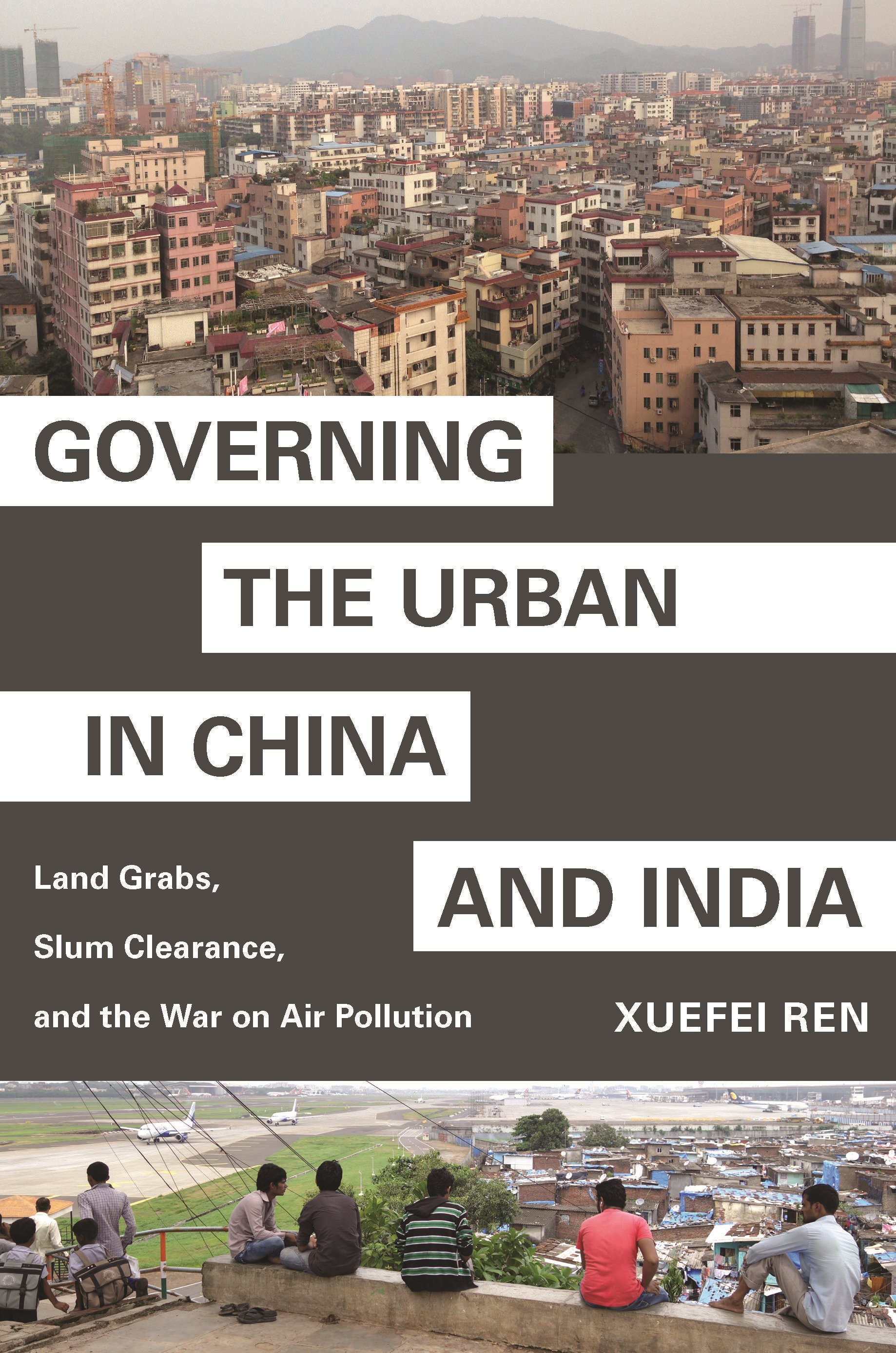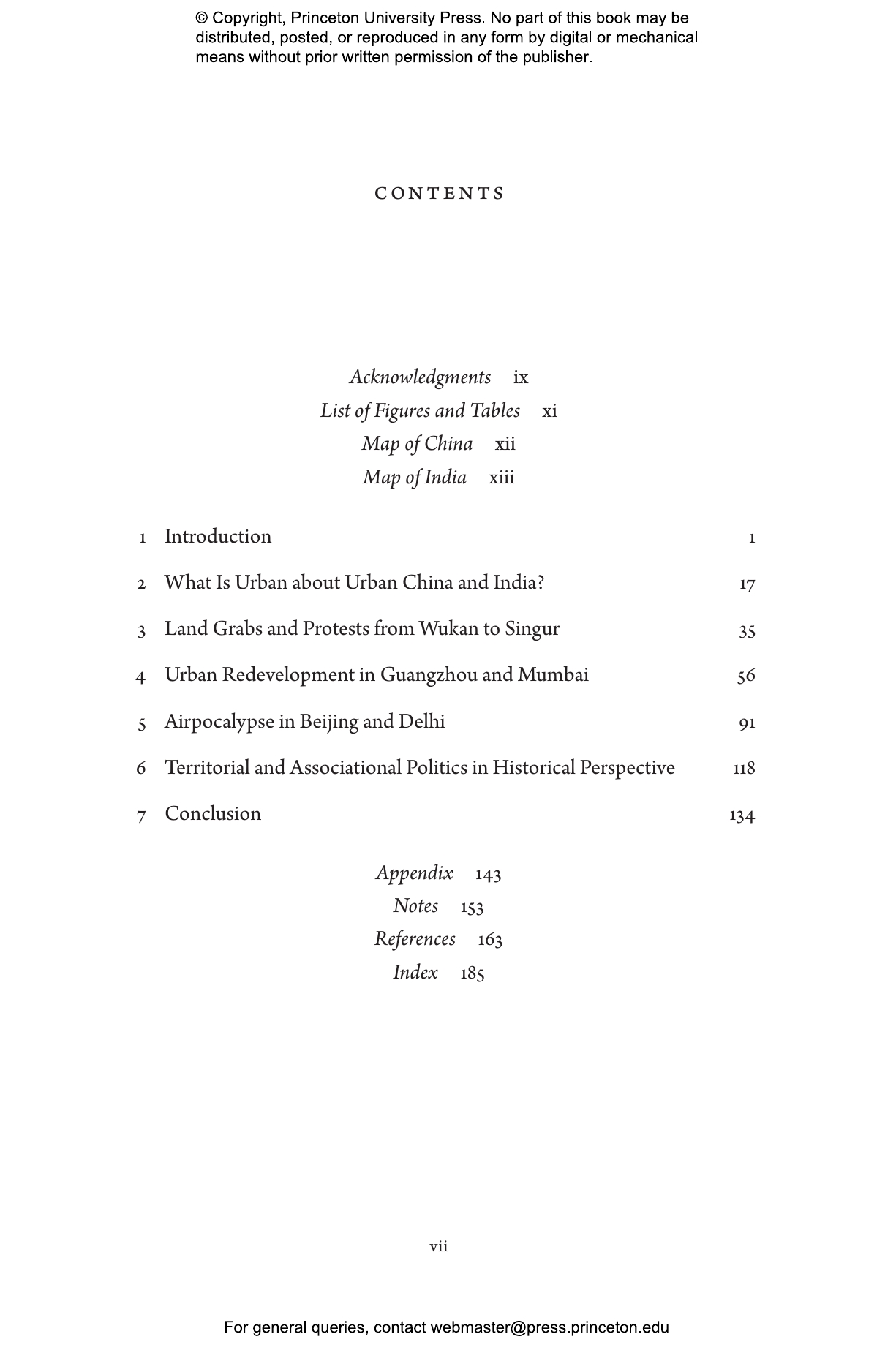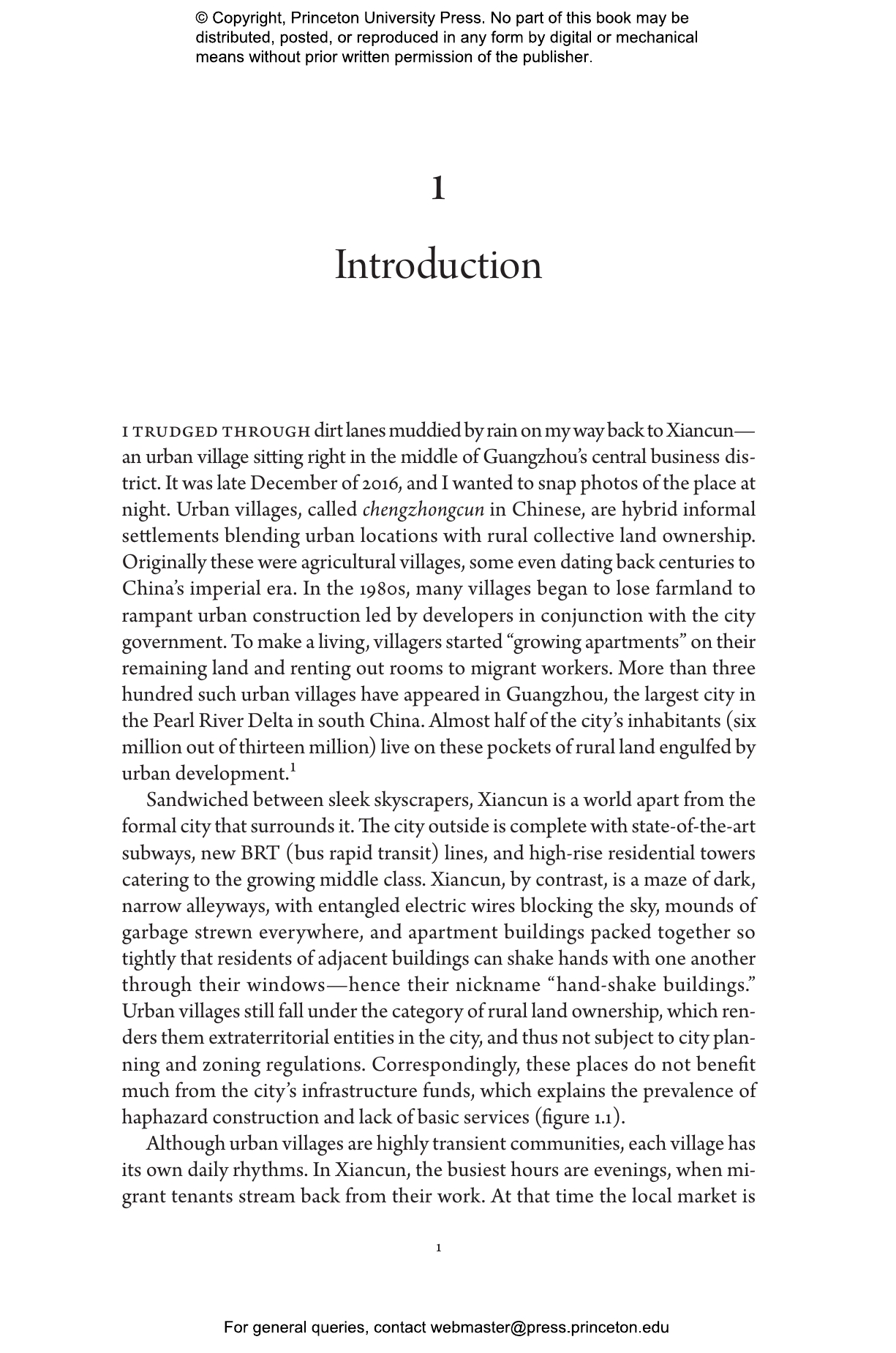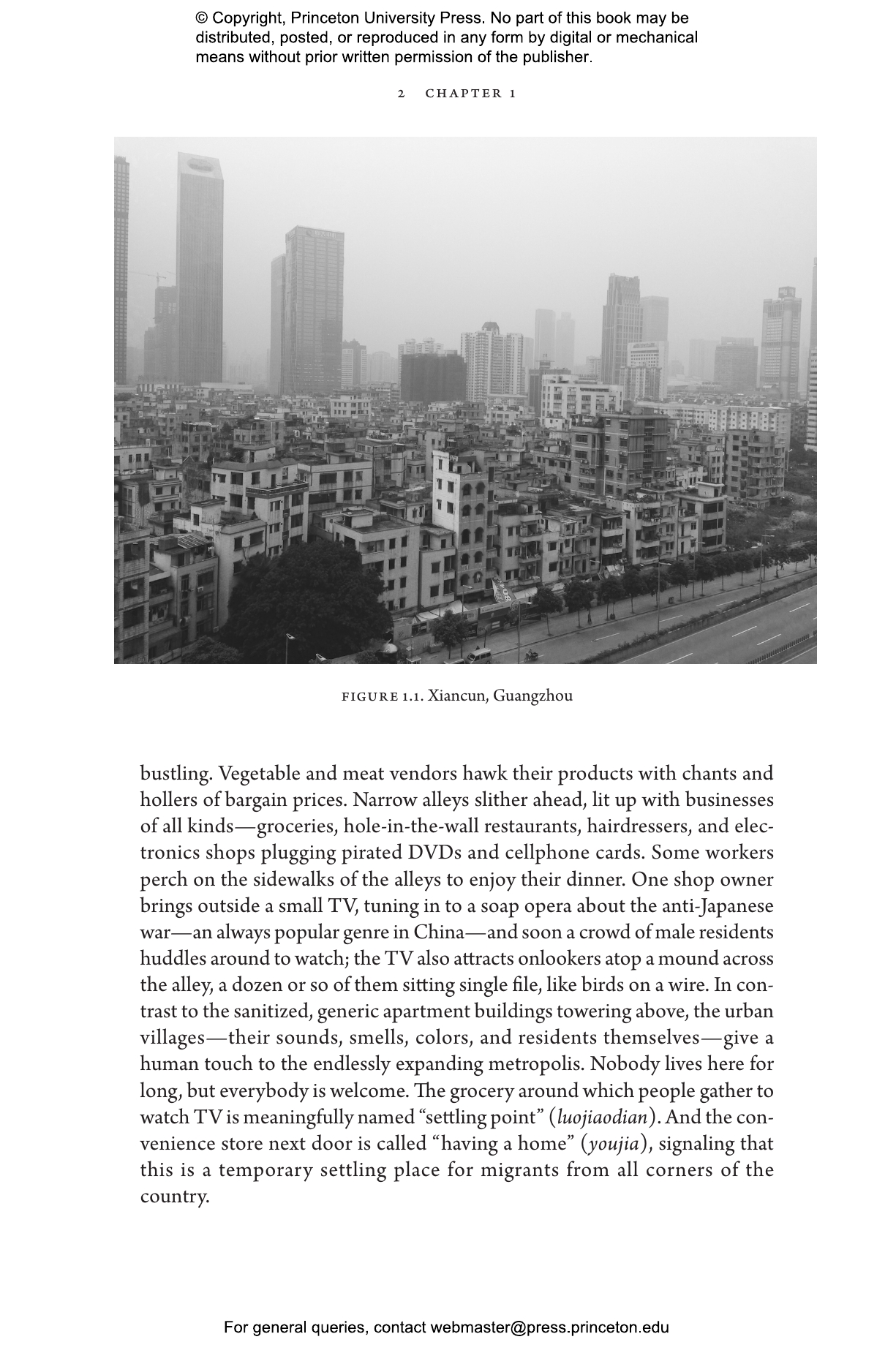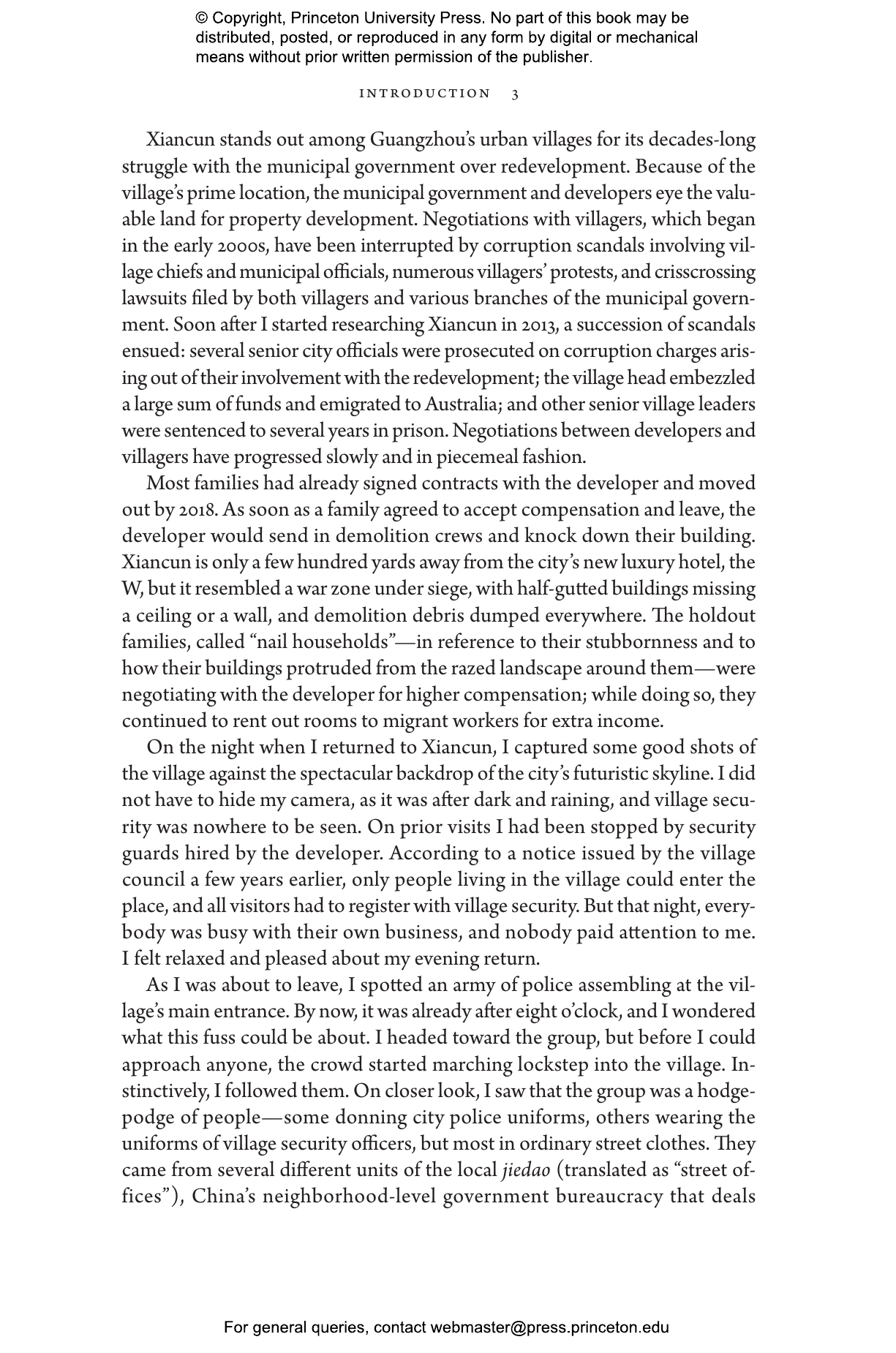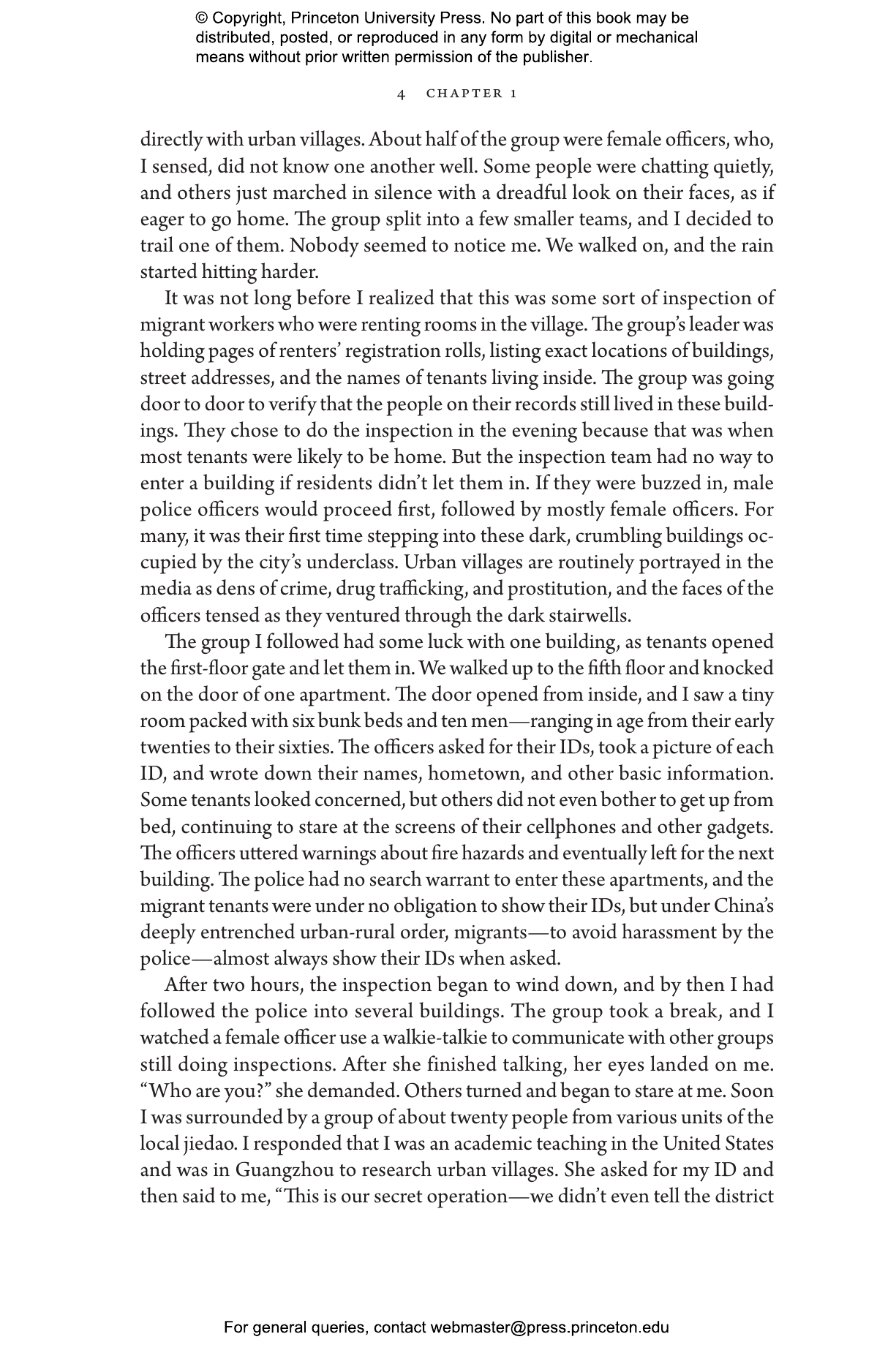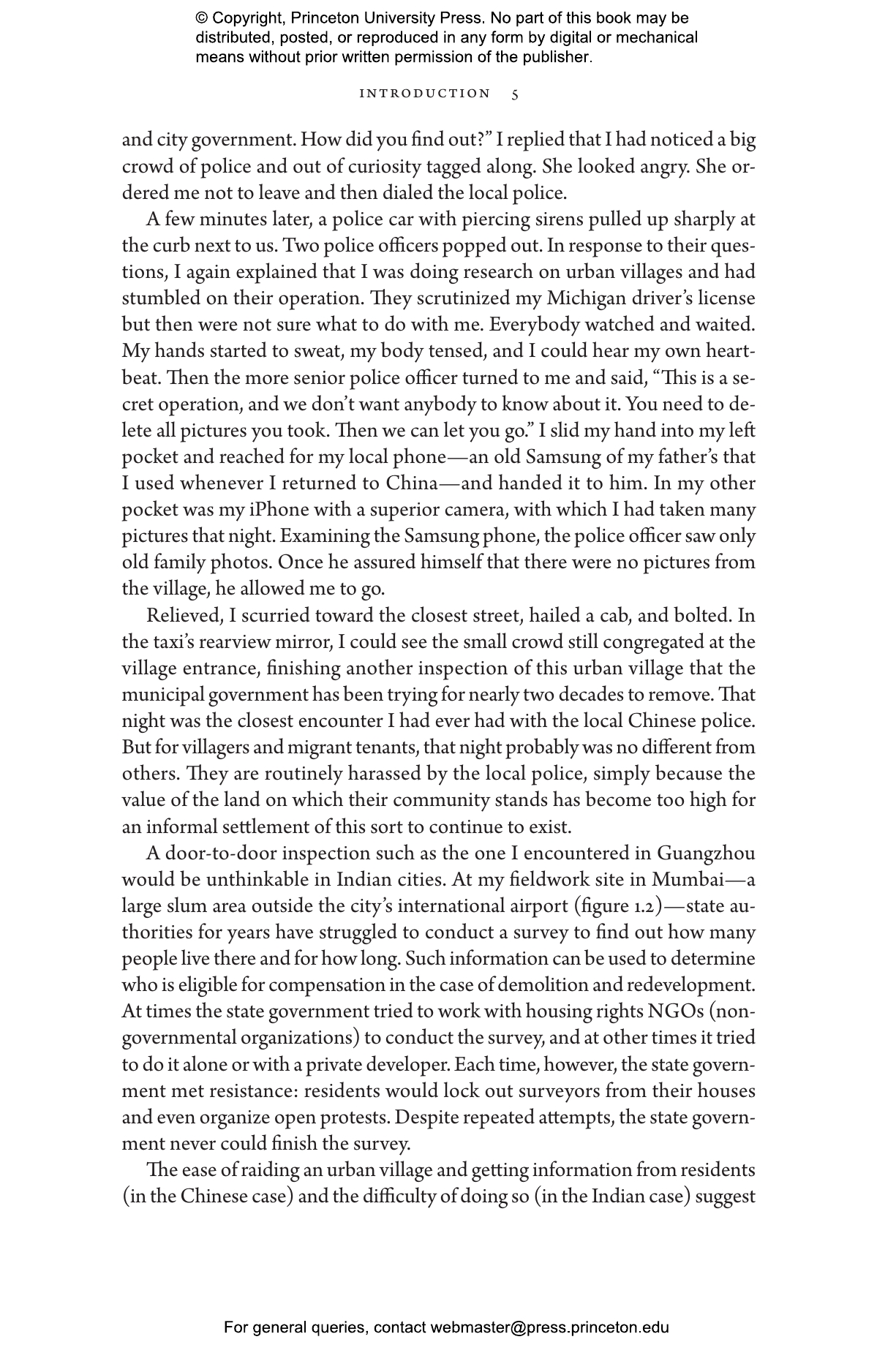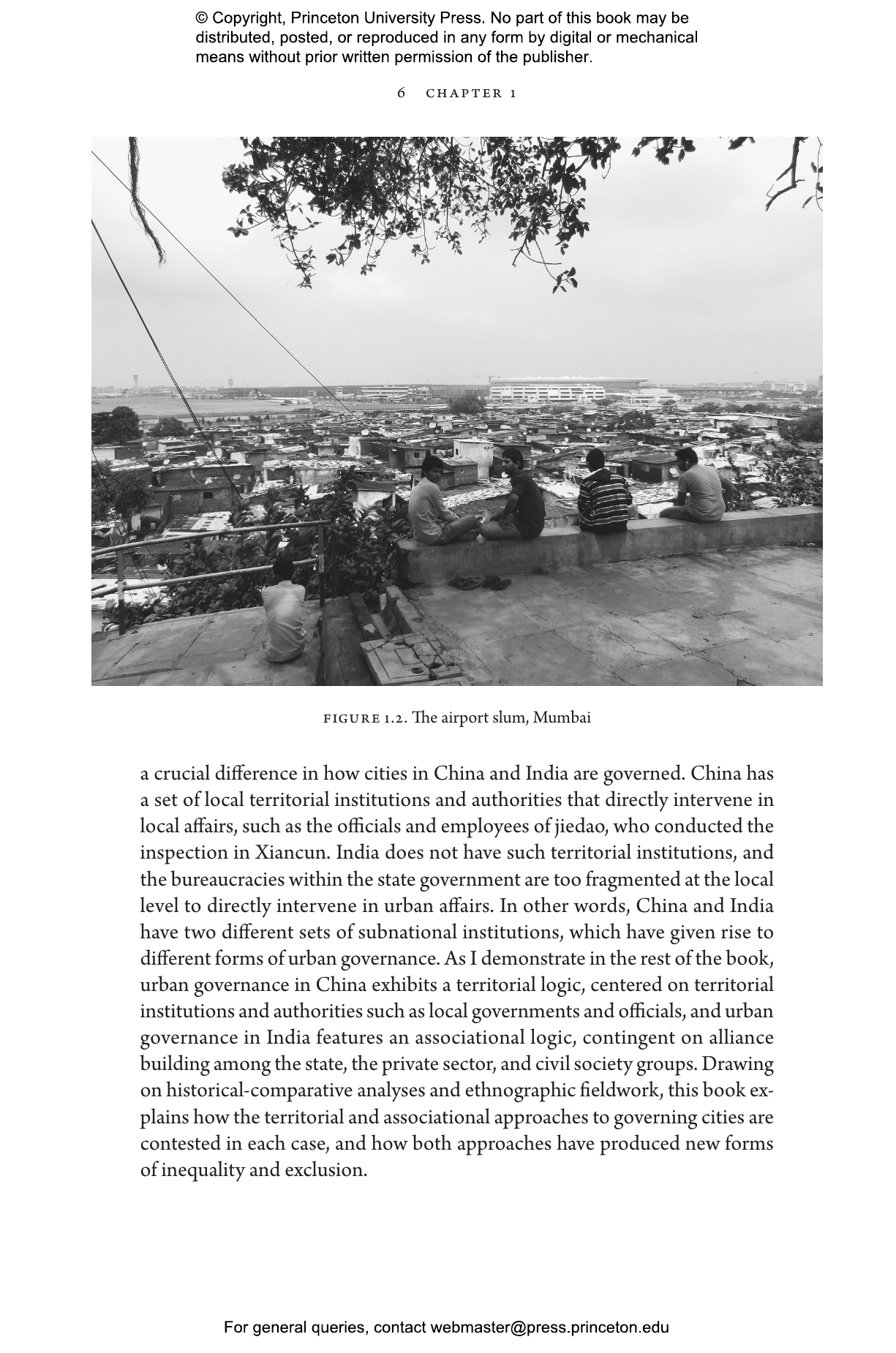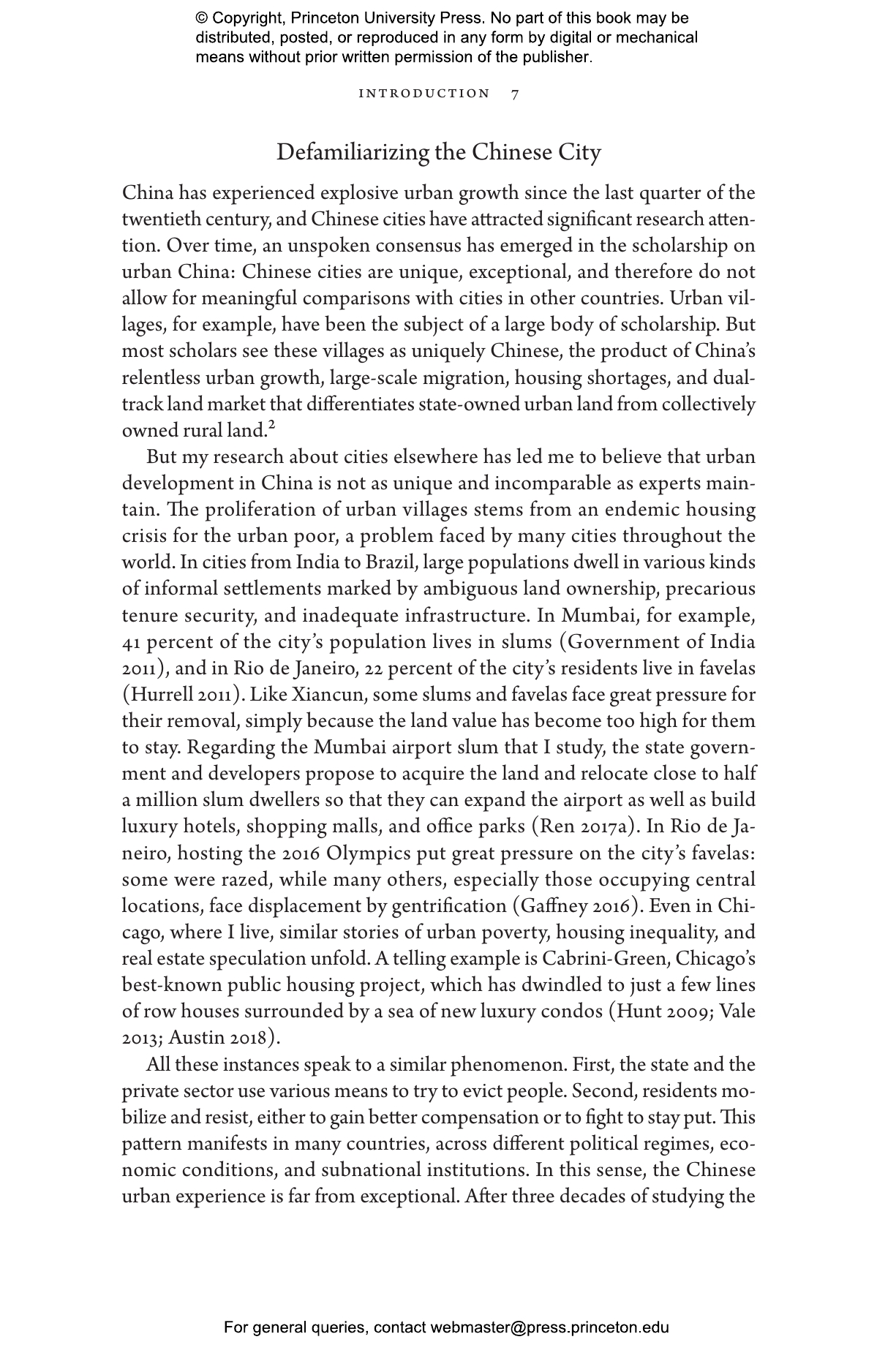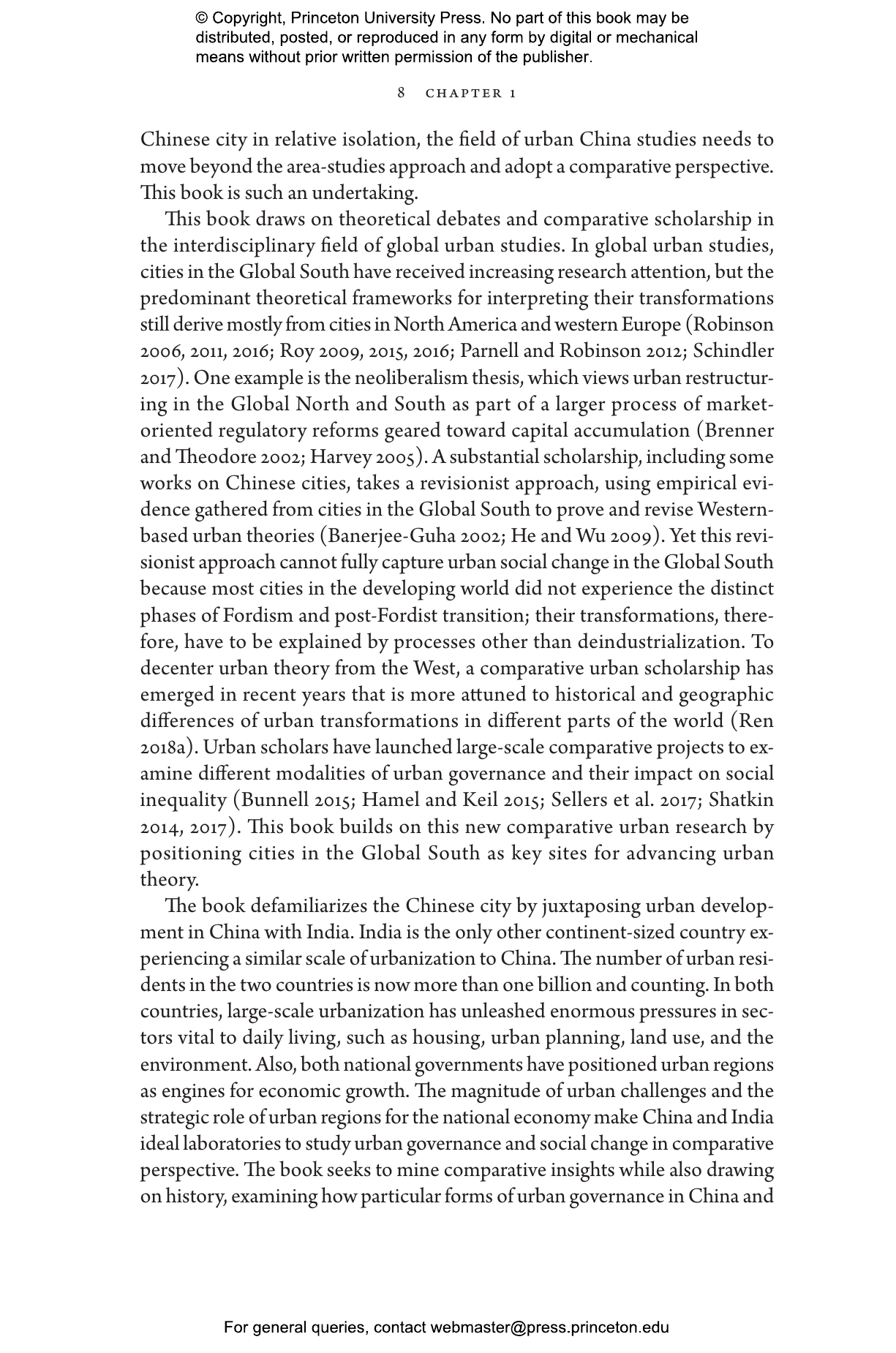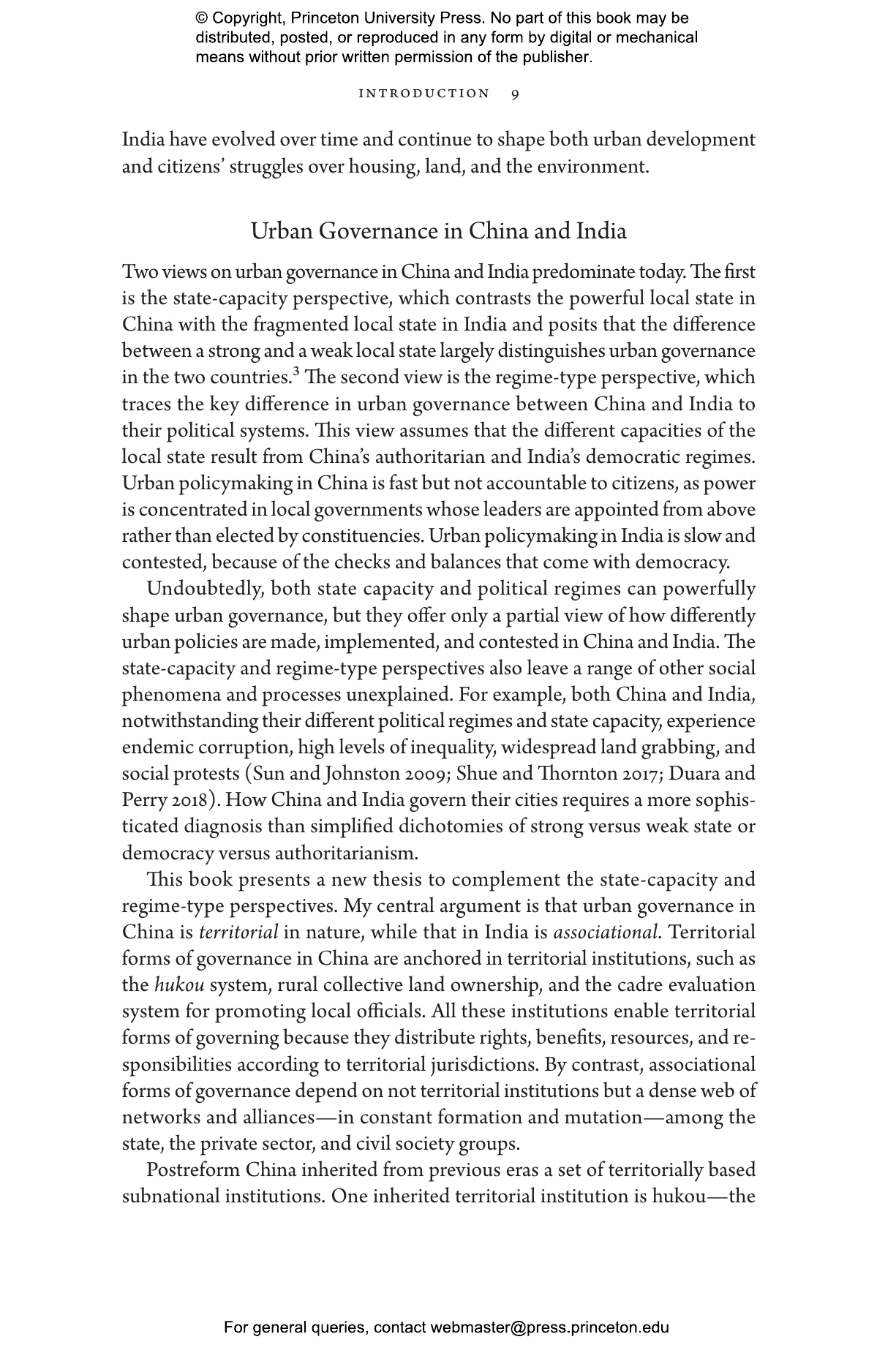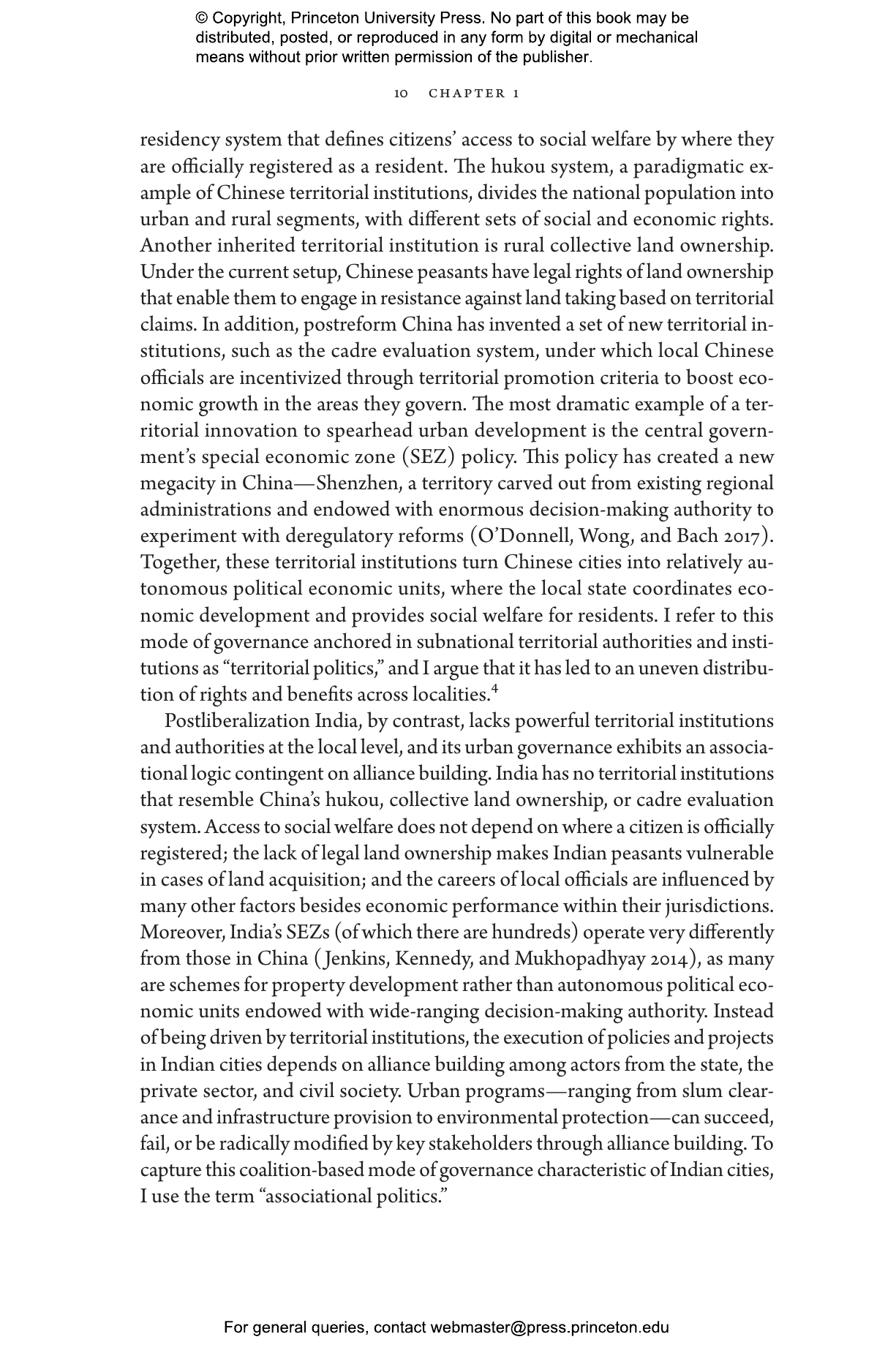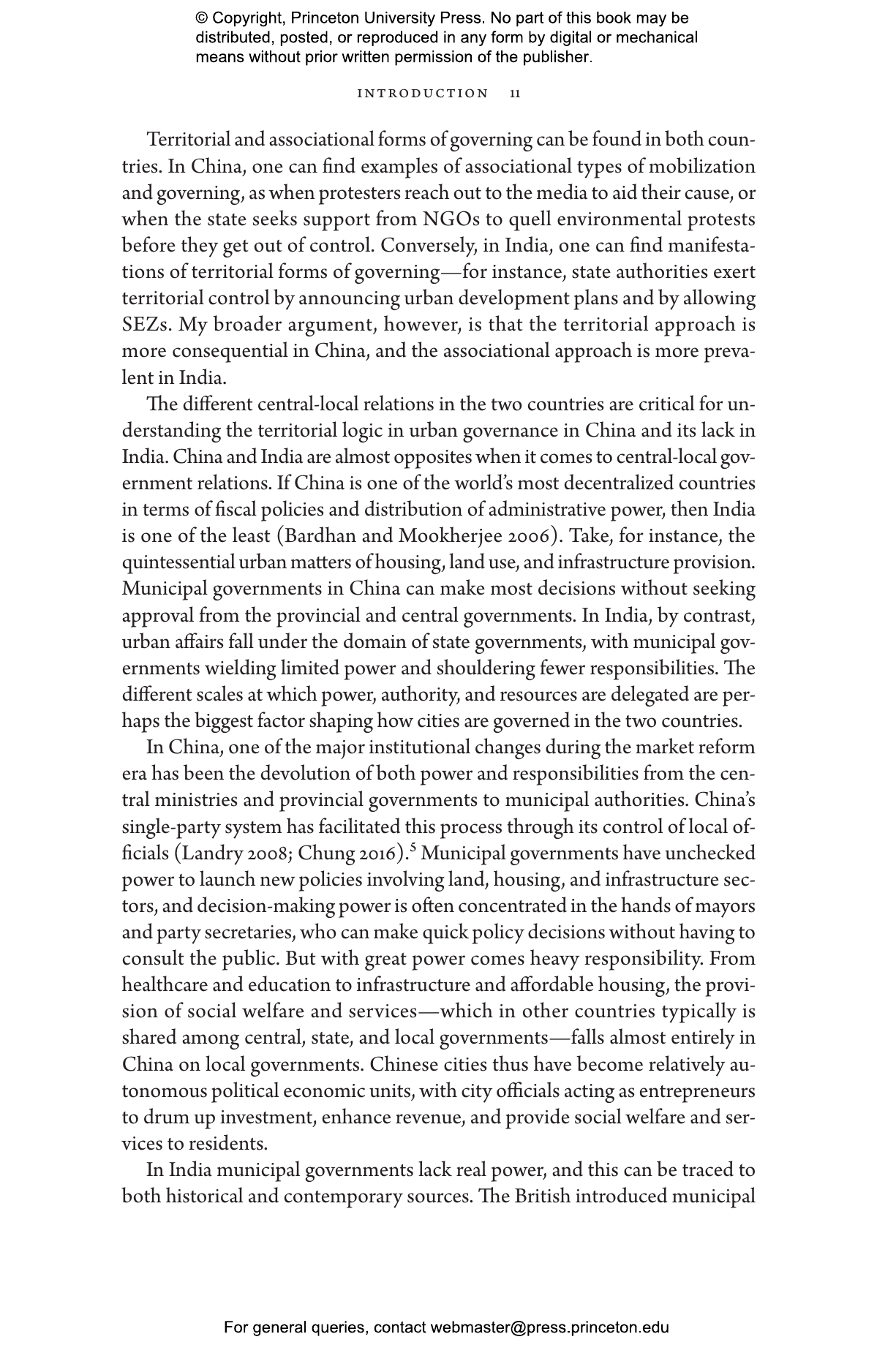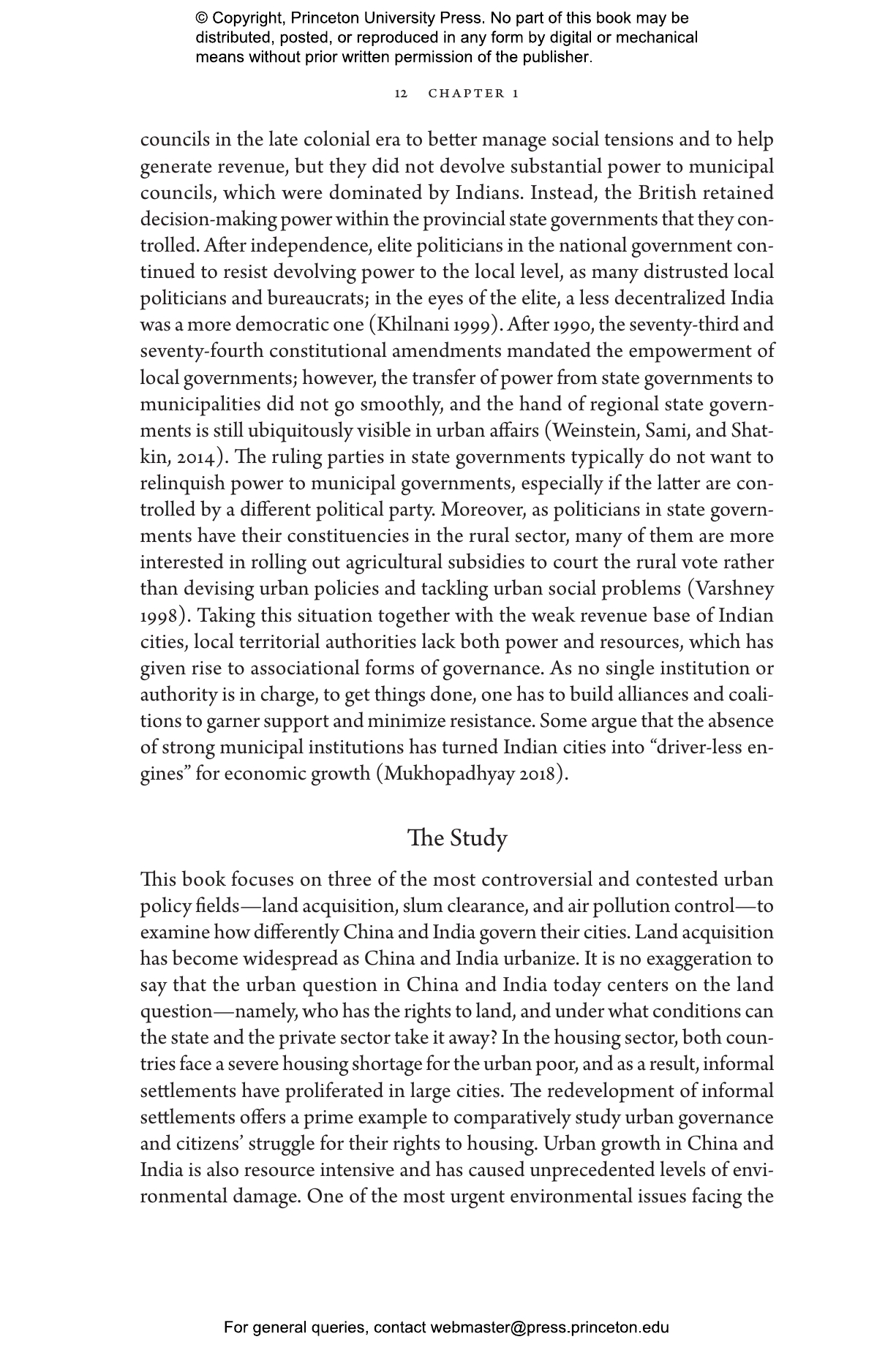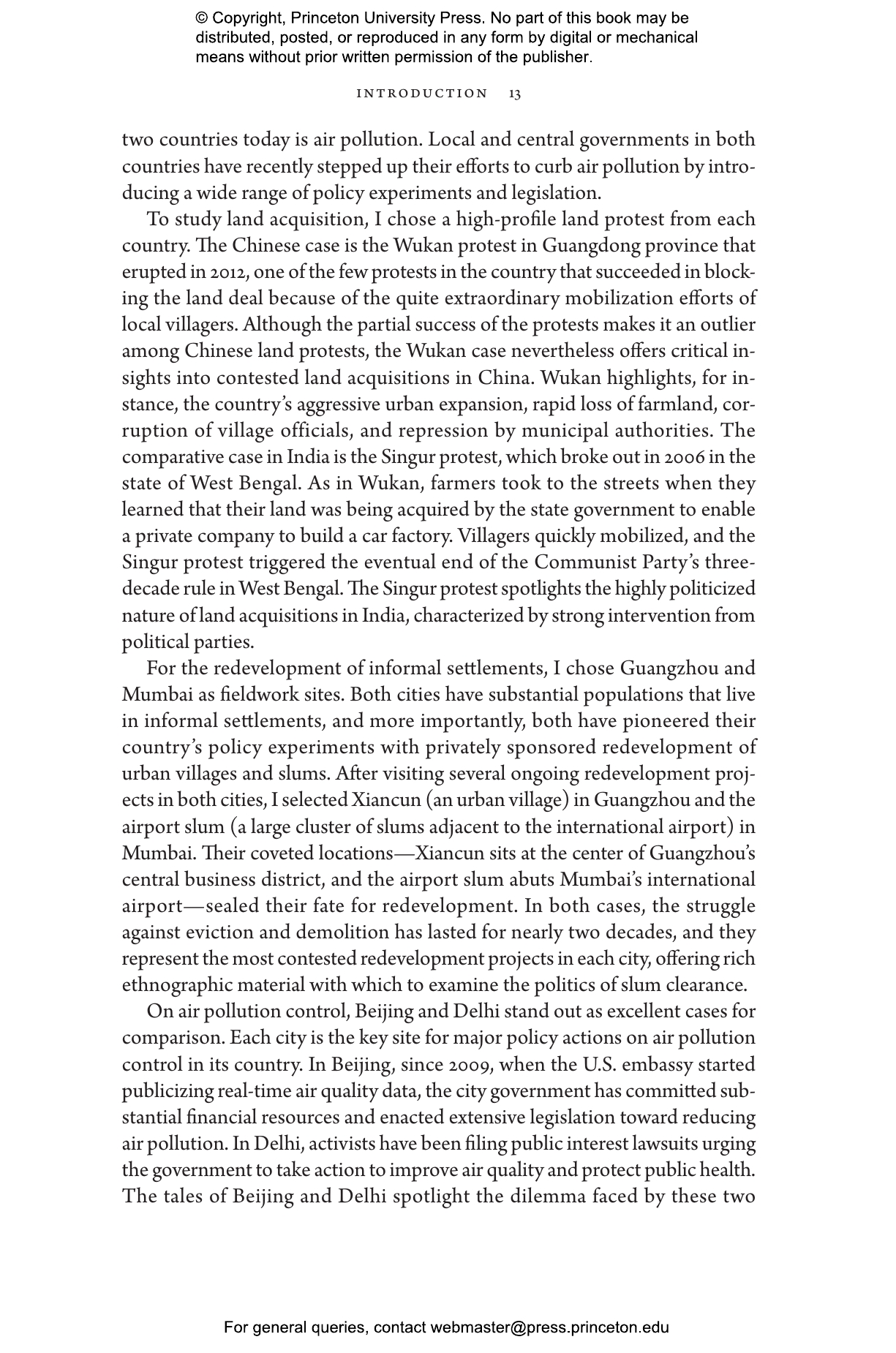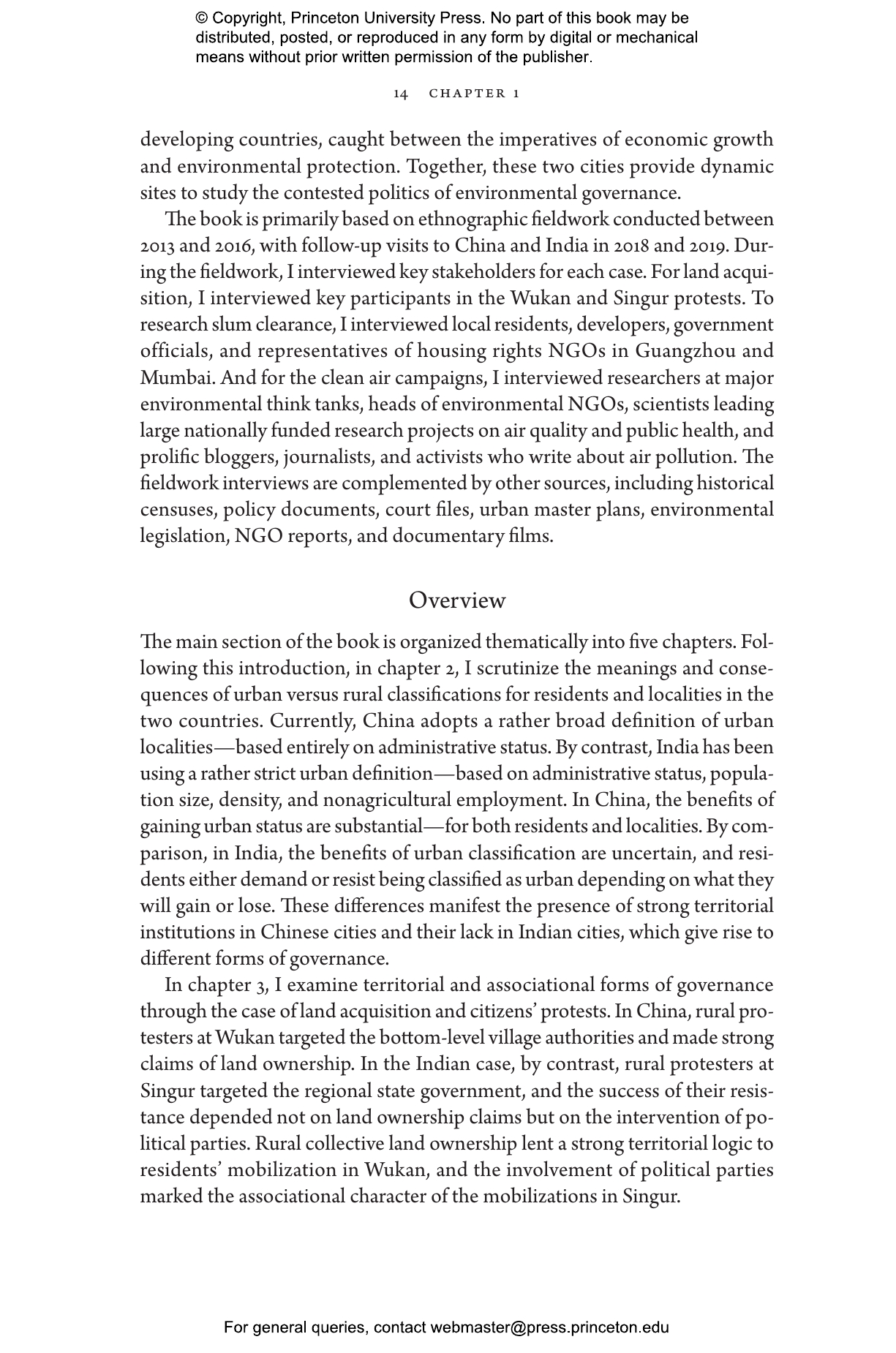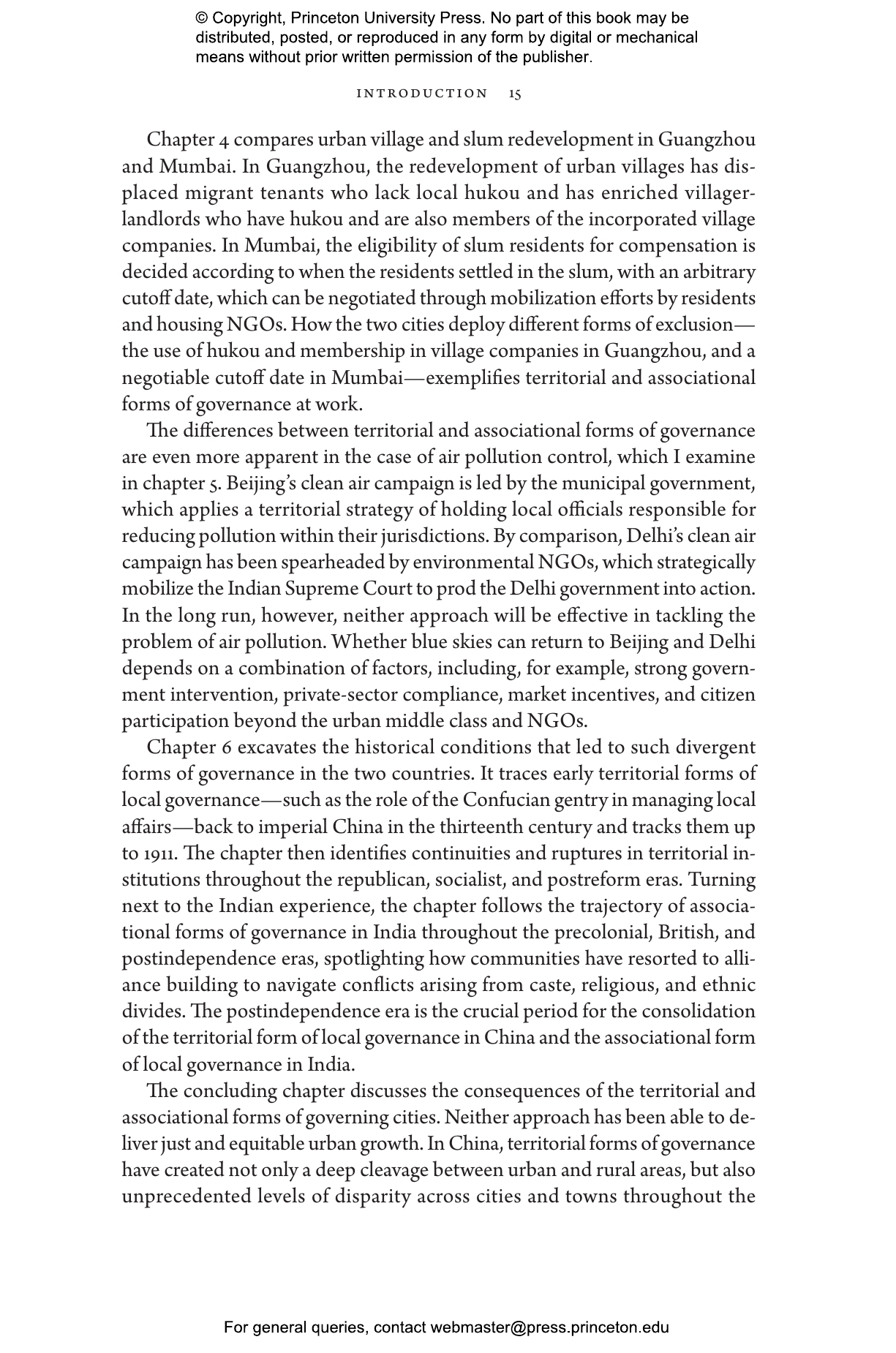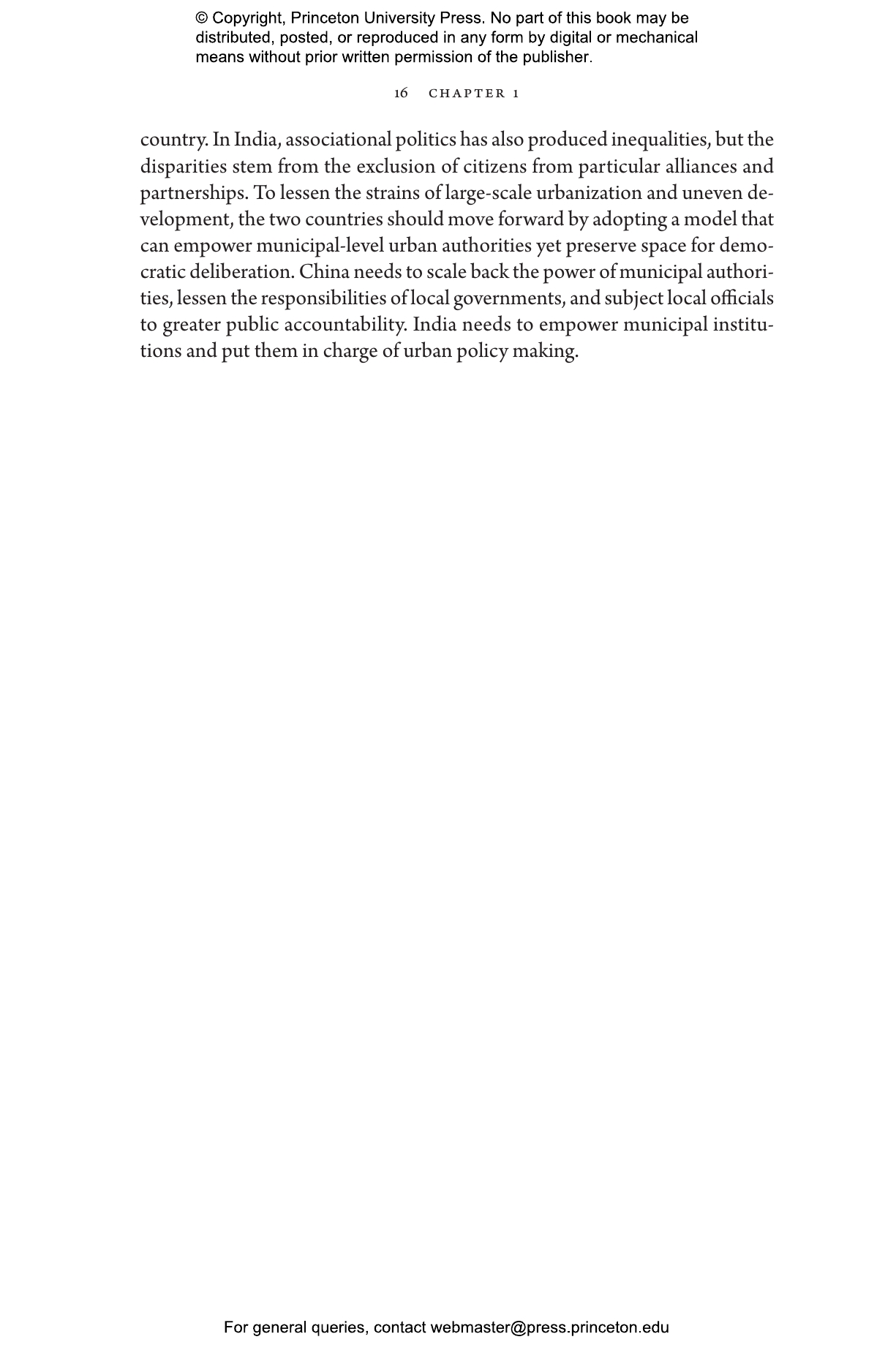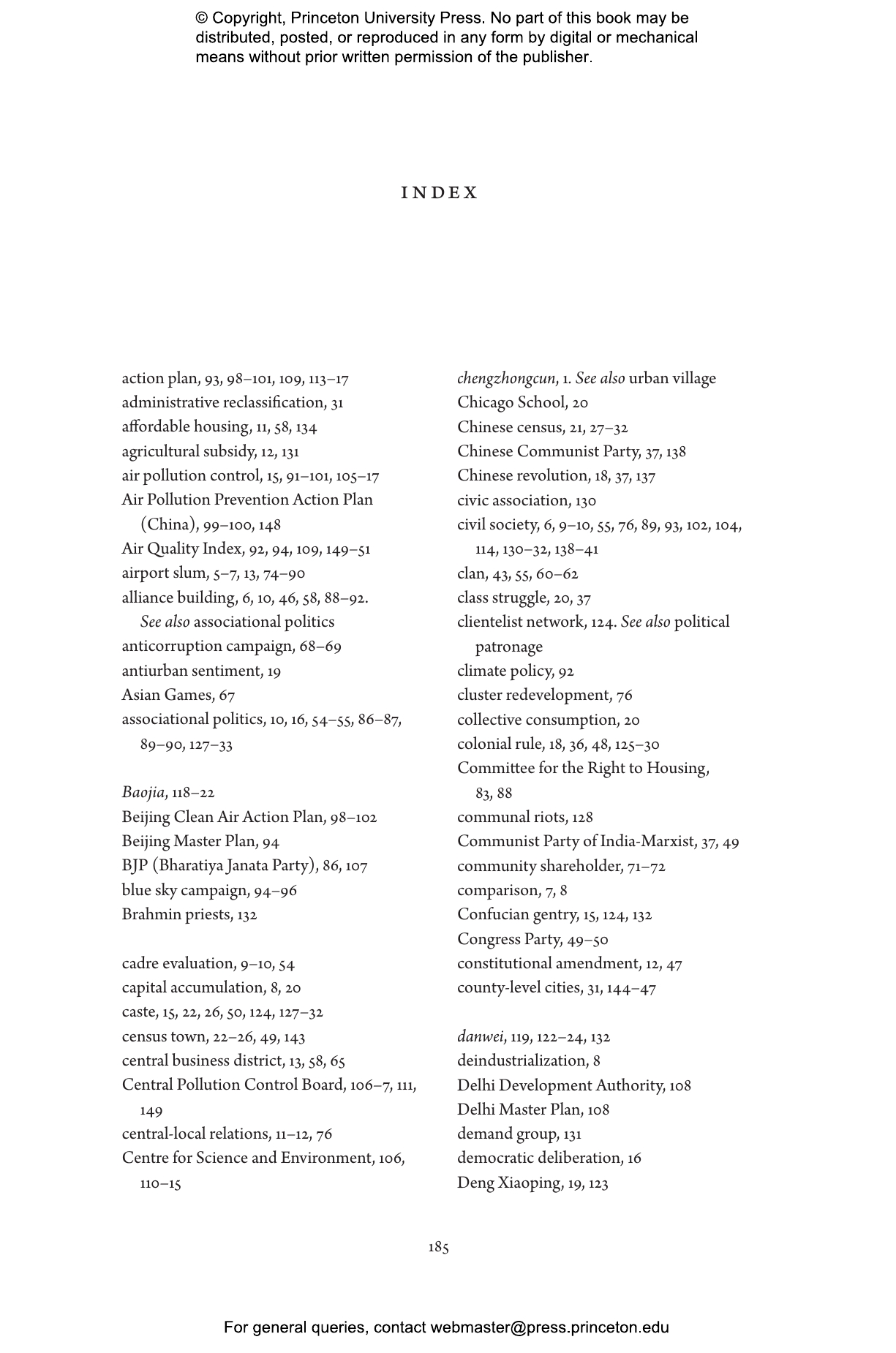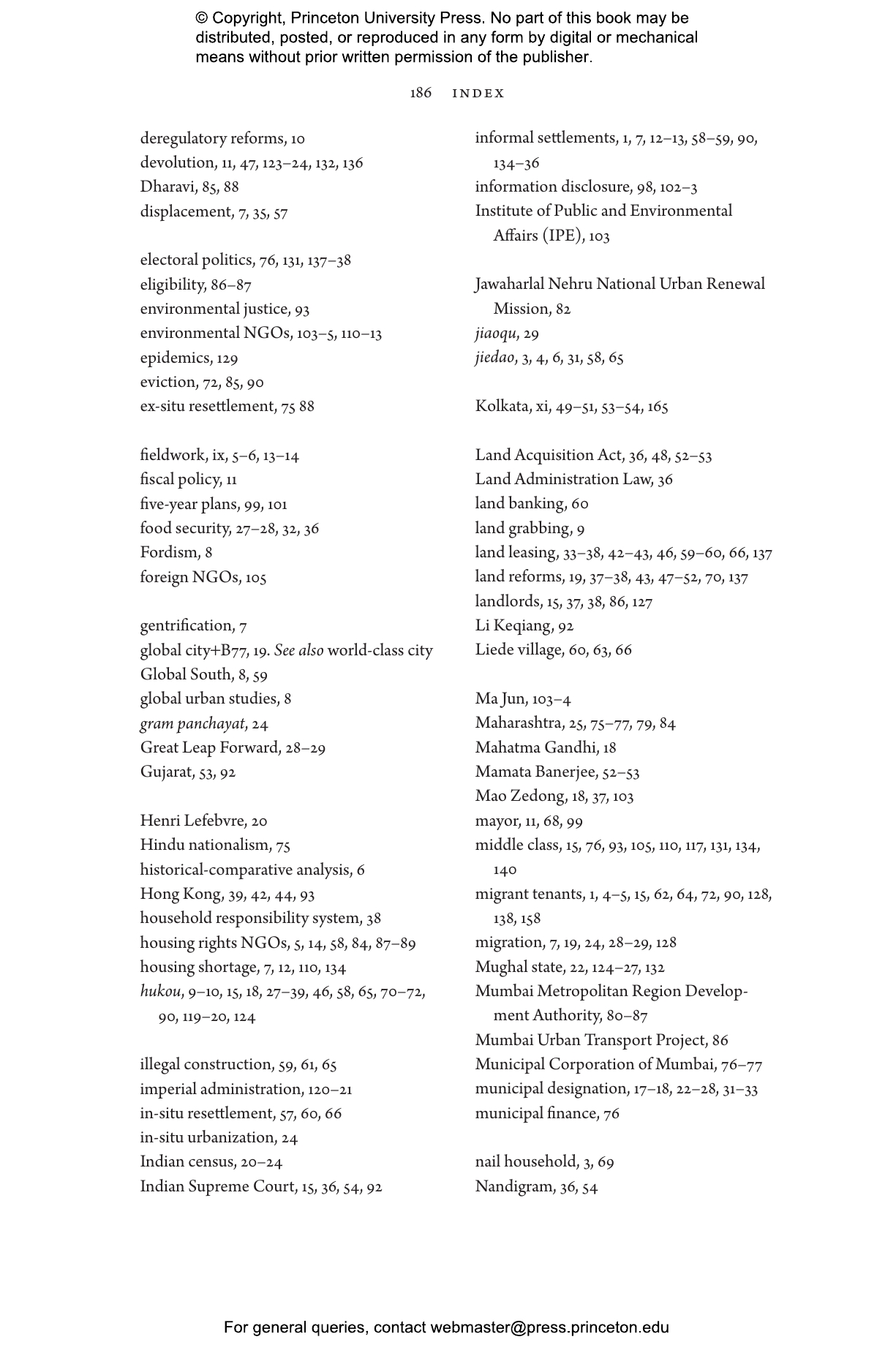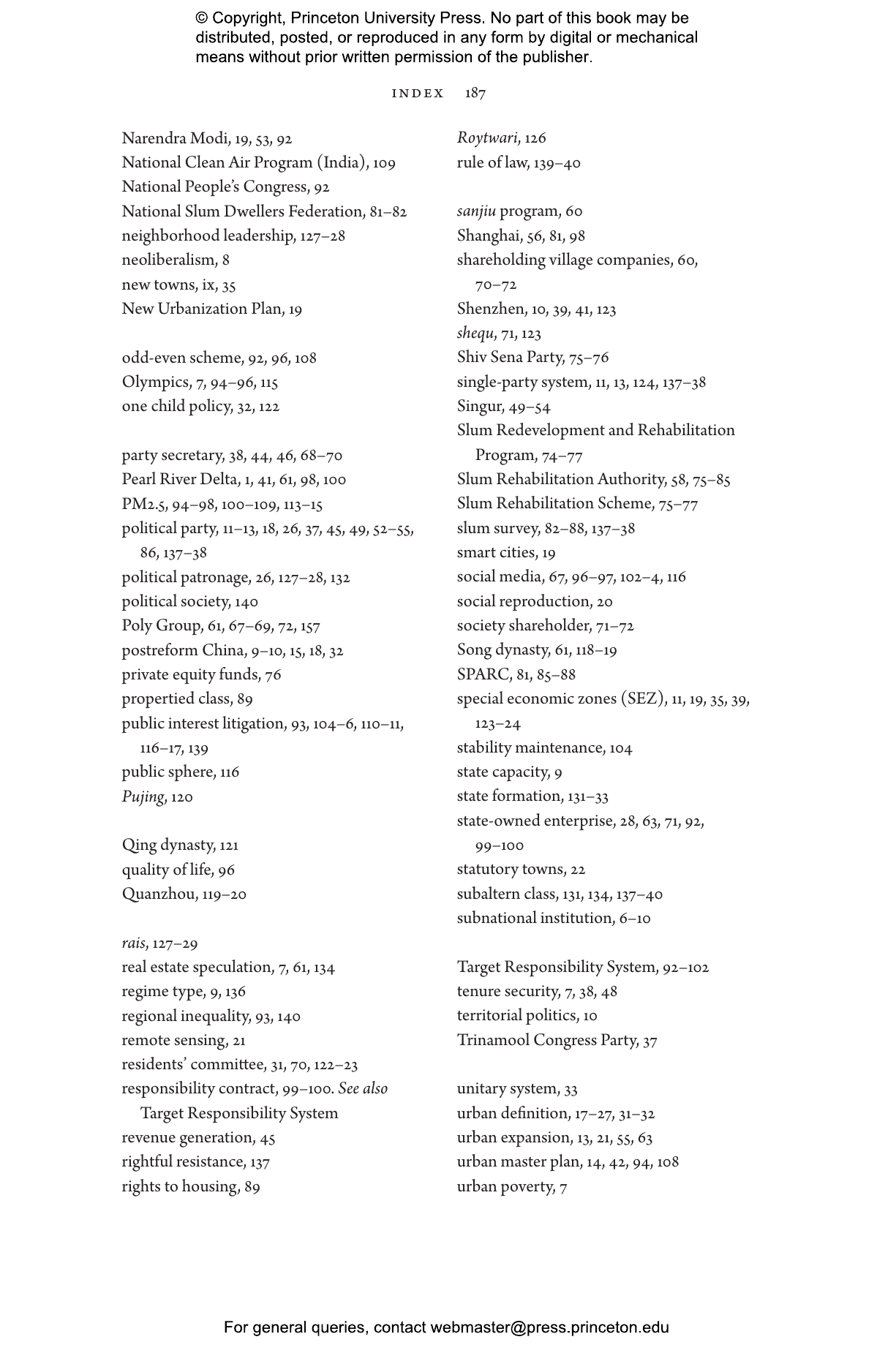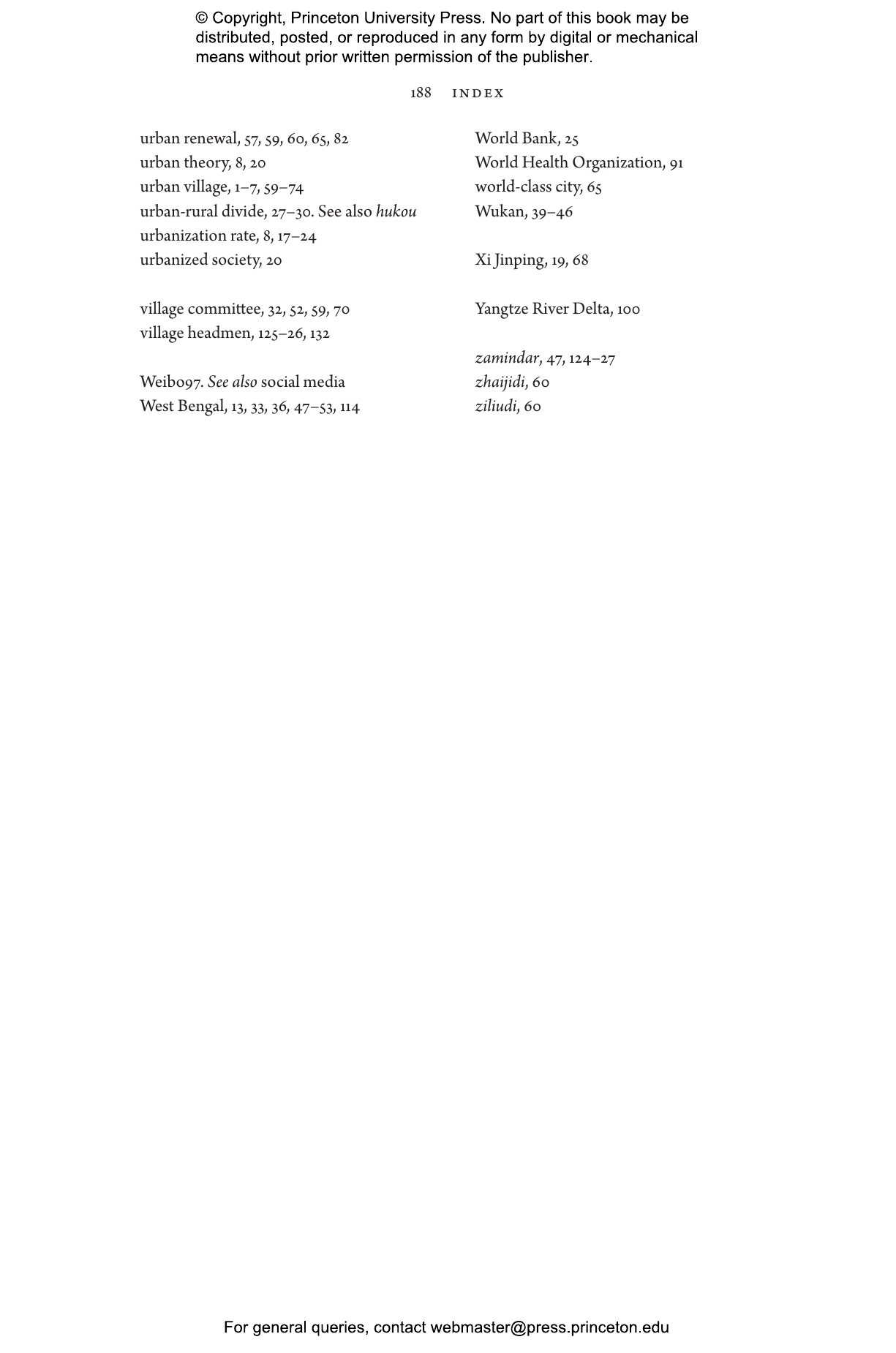Urbanization is rapidly overtaking China and India, the two most populous countries in the world. One-sixth of humanity now lives in either a Chinese or Indian city. This transformation has unleashed enormous pressures on land use, housing, and the environment. Despite the stakes, the workings of urban governance in China and India remain obscure and poorly understood.
In this book, Xuefei Ren explores how China and India govern their cities and how their different styles of governance produce inequality and exclusion. Drawing upon historical-comparative analyses and extensive fieldwork (in Beijing, Guangzhou, Wukan, Delhi, Mumbai, and Kolkata), Ren investigates the ways that Chinese and Indian cities manage land acquisition, slum clearance, and air pollution. She discovers that the two countries address these issues through radically different approaches. In China, urban governance centers on territorial institutions, such as hukou and the cadre evaluation system. In India, urban governance centers on associational politics, encompassing contingent alliances formed among state actors, the private sector, and civil society groups. Ren traces the origins of territorial and associational forms of governance to late imperial China and precolonial India. She then shows how these forms have evolved to shape urban growth and residents’ struggles today.
As the number of urban residents in China and India reaches beyond a billion, Governing the Urban in China and India makes clear that the development of cities in these two nations will have profound consequences well beyond their borders.
Awards and Recognition
- Honorable Mention for the Dennis Judd Book Award, Urban Politics Section of the American Political Science Association
- Winner of the Robert E. Park Award, Community and Urban Sociology Section of the American Sociological Association
Xuefei Ren is associate professor of sociology and global urban studies at Michigan State University. She is the author of Building Globalization and Urban China.
"[An] invaluable addition to the literature that advances the agenda of comparative urban studies."—Yue Zhang, American Journal of Sociology
"A foundational work that future comparative studies on urban China and India will build on."—Outi Luova, Eurasian Geography and Economics
"This ambitious book will be of interest to all scholars of urban politics.—Zachary Levenson, Contemporary Sociology"—Zachary Levenson, Contemporary Sociology
"The rise of China and India is a major global development and represents a shift in our Western understanding of the world. In Governing the Urban in China and India, Xuefei Ren examines these two countries in ways that bring to the fore what is usually overlooked. This is a must-read book that addresses the growing interest in the differences and similarities between these two emerging powers."—Saskia Sassen, author of Expulsions
"In this comparative study of China and India, Xuefei Ren shows how inequality thrives in two very different economic and political systems. At a time when many academic works are siloed into disciplines or country studies to the point where they seem relevant to only diehard specialists, Ren has taken the bold step of familiarizing herself with two enormously complex countries and bringing their challenges to life."—Ian Johnson, Pulitzer Prize–winning journalist and author of The Souls of China
"This book boldly compares the two demographic and urbanizing behemoths of this century, China and India. Drawing from documentary, secondary, and ethnographic data, Xuefei Ren argues that differences in urban governance can be attributed to the distinction between a Chinese territorial model and an Indian associational model. The writing is excellent and the presentation and interpretation of sources are exemplary."—Deborah Davis, author of The Consumer Revolution in Urban China
"Governing the Urban in China and India undertakes the most extensive and systematic comparative analysis to date of urban governance and politics in China and India. With an innovative approach and elegant writing, this ambitious and timely book is accessible to a wide range of audiences. It will interest urbanists and scholars of China and India in the fields of sociology, geography, urban planning, public policy, and development studies."—Gavin Shatkin, author of Cities for Profit
